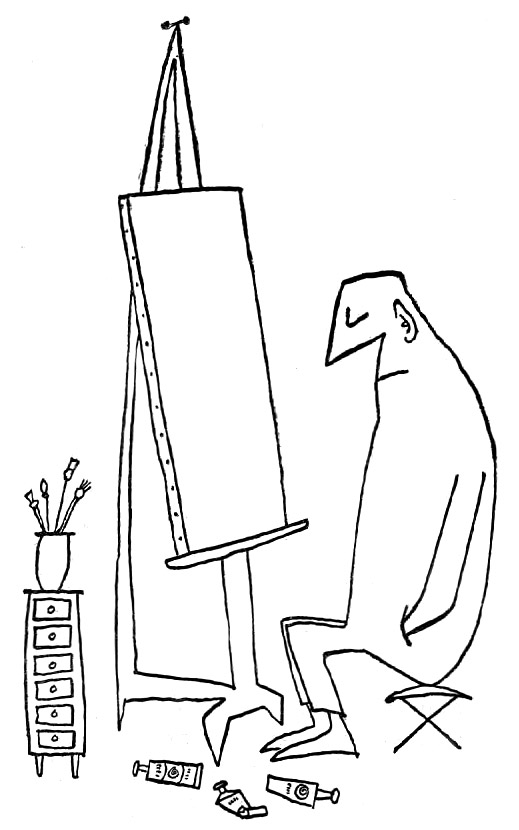
Filipino basketball fans expect and tolerate some hanky-panky. Wealthy teams ignore the salary cap pretty blatantly. This brings up a disparity between the types of teams you have playing. Some want to win at any cost. However, because Filipino basketball is all run by corporate sponsorship—with team names like the Rain or Shine Elasto Painters and the San Miguel Beermen—you have other teams for whom winning is not as vital. They’re funded by people who find it a prestigious association for their corporation, win or lose. If the Coca-Cola Tigers beat the Barako Energy Coffee Masters, the announcer still has to say “Barako Energy Coffee Masters.” —“Thrilla in Manilla,” Rafe Bartholomew, interviewed by Lapham’s Quarterly
Brazen ninjas ice-heist;
stop-chop USA, on the rise;
get your fricking drone off my sensitive border, buddy!
What its purpose might be, I don’t know. Nor, does it seem, does anyone else. But I can report that as an artistic statement, this melodramatic monument is highly derivative. Not only does it clearly take its visual cues from Ghost Bikes— the sculptural series that began sprouting around New York five years ago in memory of slain bike riders—but it follows a long tradition of artists taking some shit and painting it white, from Cy Twombly’s all-white sculptural assemblages to Jasper Johns’s white flag to Günther Uecker’s nails on a canvas board to Robert Ryman’s pallid canvases. And, of course, there is the visual debt to sculptor Charles Long, below, whose 2003 work “Soundly Through the Noise” kinda looks like it could at one point have been a stroller chained to a signpost. (Speaking of which, this little number could be yours simply by dialing the esteemed Tonya Bonakdar Gallery.) —“The Ghost Stroller: If It’s Art, It’s Bad Art,” Carolina A. Miranda, DadWagon
Thirteen hundred miles away, a man and a woman performed on the subway platform. He was from Honduras via Mexico and Texas, played acoustic guitar, and sang in a deep voice without vibrato. She sat in a folding chair next to him until he nodded. Then she stood up and joined him, too heavily on the beat, a crippled walk, and well off-key. A train came screaming into the station, so he stopped, but she kept on, so he slapped her. Then she stopped. Then he covered his ears with his hands. The train left, and he told me the noise penetrates his head. When he found out that I’m from Texas, he sang a song he’d written about a man near Port Isabel who wants to flirt with an American girl but can’t because his English is no good. In the song he doesn’t name the American girl. He calls her chamaca, something like “kiddo.” After the song, he told me the American girl’s real name. It wasn’t the girl with him now; she was from Veracruz, and her name was Lucero. His own name was Santo. When he was singing about the hair of the unreachable American girl near Port Isabel, Santo’s right hand left the guitar strings for a moment to touch Lucero’s hair. —“The Thickness of Soup or Hair,” Mark Dow, Agni


